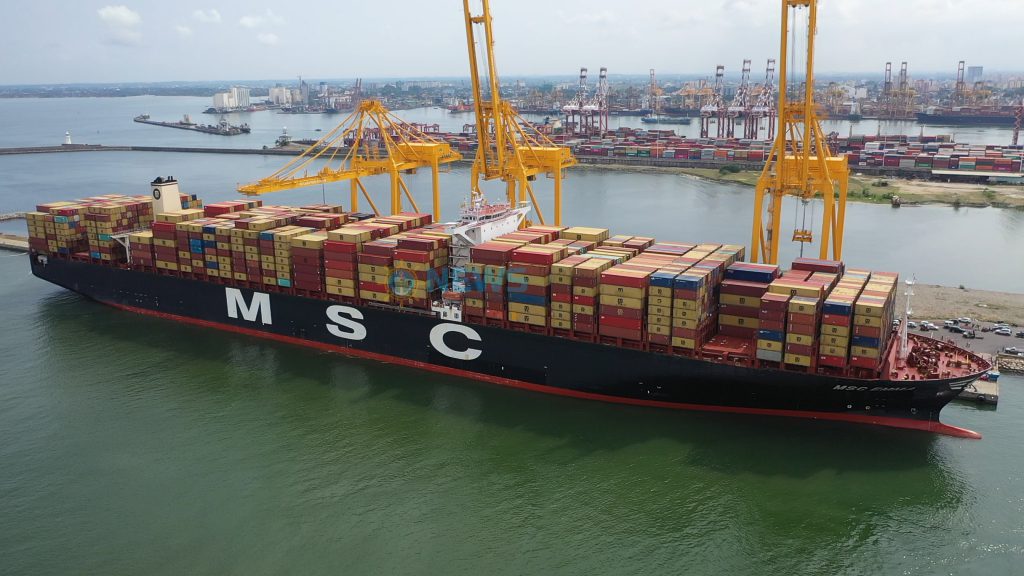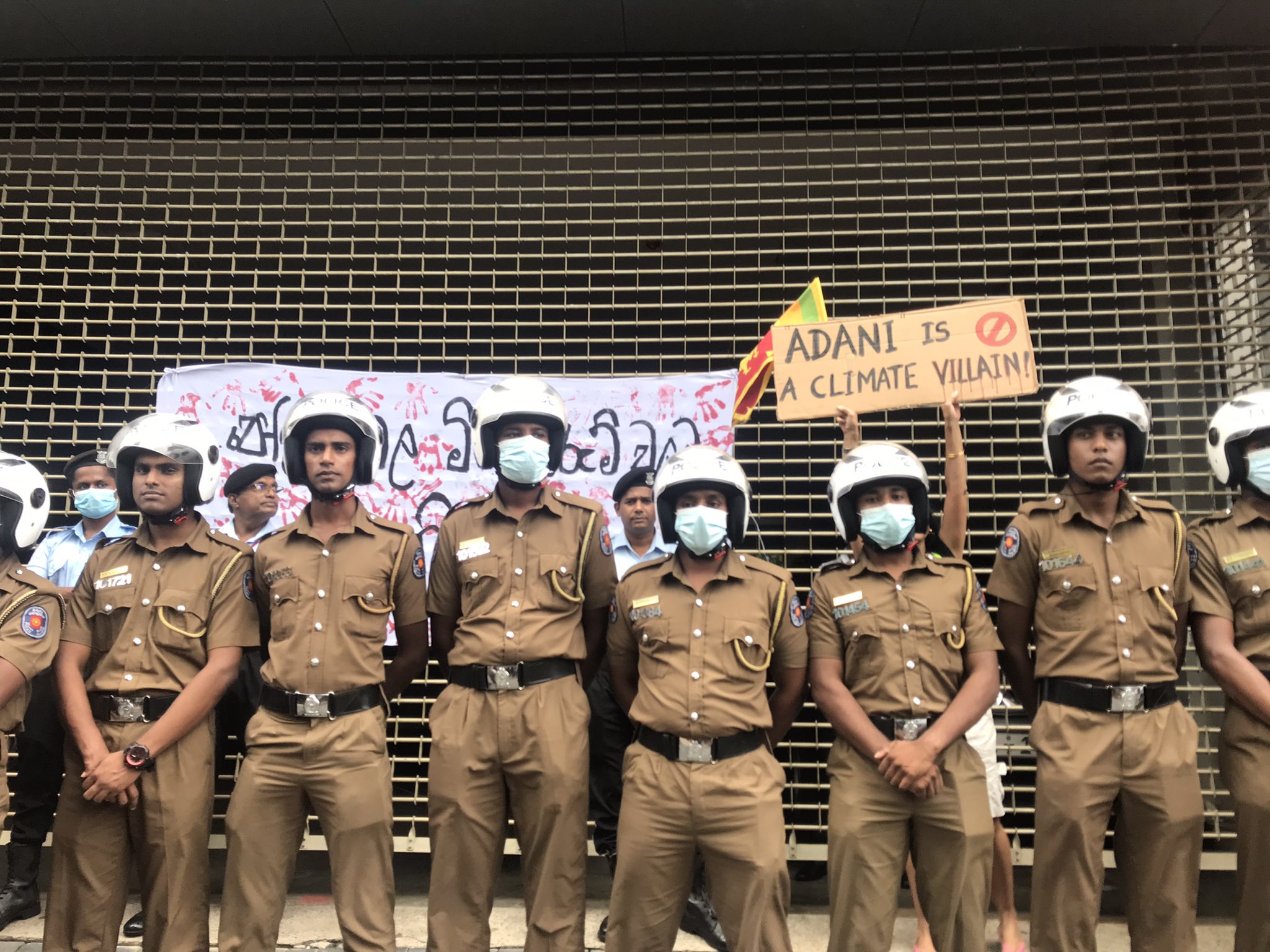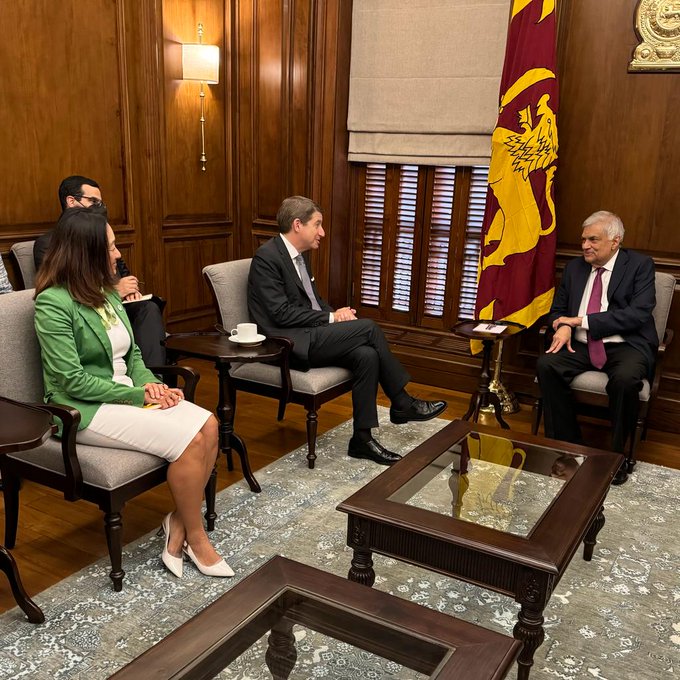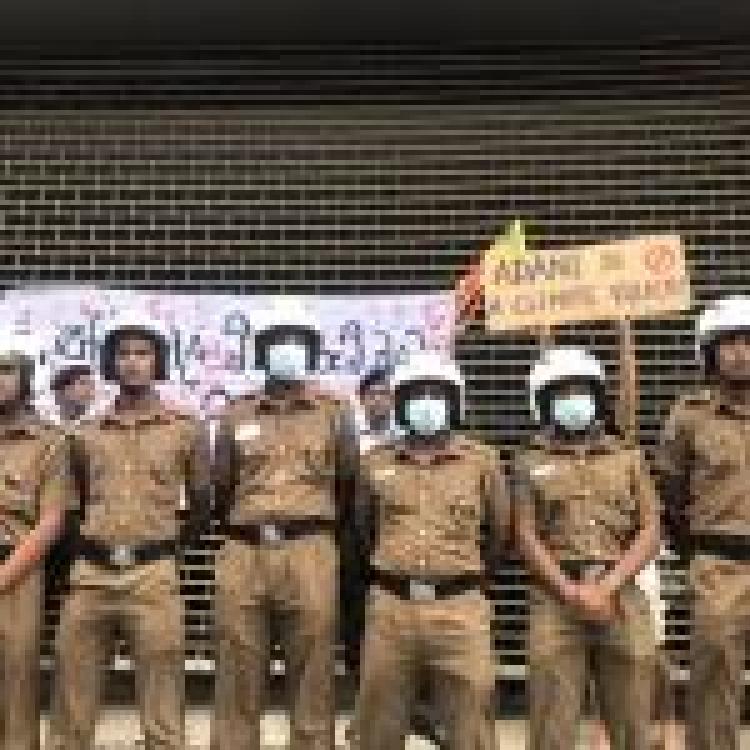
File photograph: Colombo's Port.
The United States has agreed to lend US$553 million to build a new container terminal in the Sri Lankan capital Colombo’s port – a deal that that will see Washington work with India on the island as it grows ties across Asia.
The US International Development Finance Corporation agreed to lend money to the controversial project, which is being led by the Adani group after it won the deal in 2021. The conglomerate is closely linked with Prime Minister Narendra Modi of India and reportedly sought his influence to secure the contract, despite Sri Lankan protests.
“In just four years, DFC has gone from under $20 million to now almost $1 billion dollars invested across Sri Lanka,” tweeted the US International Development Finance Corporation following the announcement.
Nathan with Wickremesinghe earlier this month.
DFC Chief Executive Officer Scott Nathan met with Sri Lankan president Ranil Wickremesinghe this month, as Washington looked to further strengthen its links to Colombo.
Announcing the deal, Nathan said that the private sector loan to the Adani-led terminal consortium “will expand [the terminal’s] shipping capacity, creating greater prosperity for Sri Lanka — without adding to sovereign debt — while at the same time strengthening the position of our allies across the region”.
Sri Lanka will be the “2nd biggest exposure” for the institution in the India Pacific region, with India being the biggest.
“It’s high priority for the United States to be active in the Indo-Pacific region” said Nathan, after visiting the site of the new terminal.
“We are very active in other countries through out the Indo Pacific region. Sri Lanka will be very important partner of our portfolios in the region.”
The China factor
.jpeg)
Sri Lanka’s Foreign Affairs Minister, Ali Sabry, in China earlier this year.
“As they took turns describing how the loan demonstrates America’s and India’s commitment to this debt-strapped island nation and to the rest of the Indo-Pacific, neither mentioned China by name, but they did not need to,” reported the New York Times.
US involvement in the deal comes amidst longstanding fears over China’s footprint in Sri Lanka. In seemingly veiled criticism of Beijing, Nathan said the DFC was “only interested in making financially sustainable financial transactions.”
“We are not interested in giving money to projects that are not going to work. Of course, sometimes, mistakes happen. But rarely.”
His remarks seemed to point at the Chinese-funded Hambantota port, built in former president Mahinda Rajapaksa’s hometown.
The project, which was also constructed by China at a cost of more than a billion dollars failed to raise any significant traffic. Without even enough revenue to repay the loan for building it, Sri Lanka eventually settled by leasing the port and 15,000 acres of nearby land for 99-years to Beijing.
“Sustainability and local appropriateness are very important elements for what we do,” continued Nathan in Colombo.
Chinese Foreign Ministry spokesperson Wang Wenbin did not respond directly to the latest developments, but rejected accusations of ‘debt trap diplomacy’ stating that such an argument was “fabricated to disrupt and undermine China’s cooperation with developing countries”.
‘Cronyism has now crossed Palk Strait’

Protestors outside the Indian High Commission in Colombo last year.
The deal itself has been dogged with opposition from within Sri Lanka and allegations of cronyism in India.
Last year, protestors gathered outside the Indian High Commission in Colombo, chanting “Stop Adani, Stop Adani!” and “Hands off Sri Lanka”.
It came after the group won the contract to a separate renewable energy project in the Tamil North-East, reportedly at the behest of Narendra Modi. "BJP’s cronyism has now crossed Palk Strait and moved into Sri Lanka," tweeted Congress leader Rahul Gandhi in the fallout of the accusations.
The 2021 port deal, worth a reported US$700 million, was controversial for several reasons and came at a particularly difficult time for Indo-Lanka relations. Indeed, it was not New Delhi’s first choice in Colombo.
The Sri Lankan cabinet had just decided to award a deal to a state-owned Chinese company for the second phase of the East Container Terminal (ECT) – a project that India has been keen on for several years. The development of the port was initially agreed upon in May 2019 by the previous Sri Lankan regime, when then prime minister Wickremesinghe signed a memorandum of cooperation (MoC) with India and Japan to upgrade the terminal. The deal would have allowed the Sri Lanka Ports Authority (SLPA) to retain full ownership, whilst India and Japan had a 49% stake in running the terminal. Over 70% of the transhipment business at the ECT comes from India.
In 2021, and under a new Rajapaksa-led regime however, Sri Lanka unilaterally abandoned the deal, reportedly worth an estimated US$500 - 700 million. The withdrawal of the ECT deal set off a cascade of concerns from New Delhi, with one diplomat claiming it would “naturally have a rupturing effect on bilateral relations”.
In an apparent attempt to placate some of the consternation from India, Sri Lanka instead offered up the West Container Terminal (WCT). Adani inked the deal, which gave it a 51 per cent stake in the terminal partnership, while John Keells will hold 34 per cent and the Sri Lanka Ports Authority 15 per cent.
Yet, it still remains unclear how the Adani Group was chosen for the project. Whilst Sri Lanka claims that the firm was put forward by India, New Delhi insists that was not the case. Indeed, the Indian High Commission released a statement claiming that any nomination of the Adani Group and approval of the WCT deal was “factually incorrect”.
'Great promise'
.png)
Gautam Adani with Gotabaya Rajapaksa and his powerful older brother Mahinda Rajapaksa, weeks after the port deal was signed in 2021.
The US financing of the project is “a reaffirmation by the international community of our vision, our capabilities and our governance,” Karan Adani, Adani Ports chief executive, told reporters in Colombo.
Adani Ports released a statement which described the loan as “a ringing endorsement of the Adani Group,” which has seen share prices crumble after a report earlier this year accused it of stock manipulation and accounting fraud.
Adani Ports however went on to recover some of its market value and now seems to be a key partner of Washington in the region. Gautam Adani even went on to state that the US loan symbolises “regional security.”
“The relationship between Sri Lanka, the U.S. and India is multifaceted and holds great promise,” he concluded.


